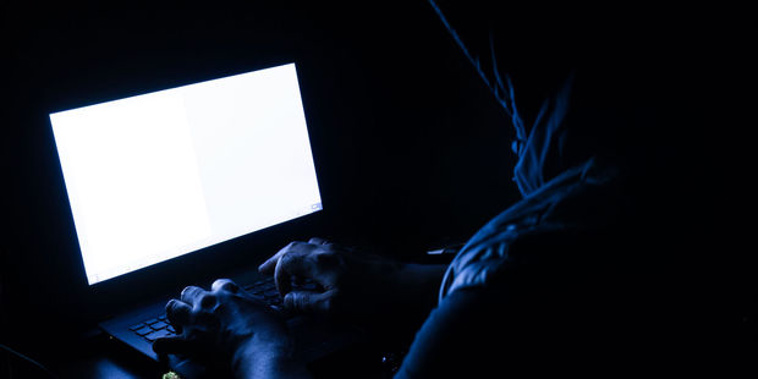
A Kiwi father has reached out for help after he made a concerning find on his 13-year-old son's laptop.
The father had been looking at his son's internet history when he discovered a wide range of extensive porn on the laptop, discovering regular viewing habits which has raised alarm bells.
"This is what is wrong with technology! Just look at the 13-year-old boy's history and f**king hell! Are any of your boys this bad? The list goes on for ages," he posted.
"Times from 3am, 3.45pm then 10pm to 3am again constantly.
"Is that normal these days with everyone on a device?"
Another parent has since come forward, telling the Herald that their 11-year-old daughter has looked up porn on the internet after becoming aware of its meaning in the school playground.
The man's post, which was accompanied by a screenshot of his son's internet history, alarmed many parents who are concerned about the impact porn may have on their children.
/arc-anglerfish-syd-prod-nzme.s3.amazonaws.com/public/53E7ZR6V4BDRZBWXQUHLLK46F4.jpg)
Some are concerned it could ruin future relationships while others are fearful it could become addictive to some adolescents and encourage damaging behaviour.
"Don't let him keep this up or he'll ruin his relationships with women in the future," one person said.
Another wrote: "As a father to a pre-teen daughter I'll be having chats with my daughter to watch out for things that make her feel uncomfortable. Our young men may get the wrong message of how to treat women from so much exposure to porn."
"We aren't ready for the mental changes this does to the new age coming through. Does this change the mindset of our kids when it comes to sexual relationships? It might be a laugh to some of us but it's becoming an issue amongst the tamariki. It's up to us to sort it out."
Child and Family psychologist David Stebbing, who is an expert of psychological problems affecting children, adolescents, adults, couples and families, believes the issue of pornography needs to be addressed, but warned about being alarmist.
Stebbing told the Herald that he has seen an increase in clients coming in with a range of issues regarding exposure to porn and sexuality.
"It's definitely something that comes into my office. Not notably addiction, but kids are certainly interested in this stuff. The research says 60 per cent of adolescent boys and 20 per cent of girls are considered regular users of pornography.
"What's part of the bigger picture is that there are changes in adolescent sexual behaviour, or the 'hook up culture'. The porn isn't totally responsible for that, but there is an increase in access to pornography and there has been a change in sexual behaviour in adolescents. You could argue there is more than simply a correlation.
"Sexting is another major issue. I've had two young people I've seen in recent times that have ended up with their own videos online and in both cases against their own desire. It had been intercepted by third parties who had posted it. The fact you can access that sort of imagery online is worrying."
It appears porn is having an impact on adolescent behaviours and how they view sex.
/arc-anglerfish-syd-prod-nzme.s3.amazonaws.com/public/KXNLXLDZ4JGEBMYQP4HAW2YIK4.jpg)
Stebbing warned that intense porn habits could skew expectation and damage relationships, but warned not to dive to conclusions about your own children.
"What we know is the sort of pornography that's accessible is skewing the way young people see sex; both themselves and their own expectations of what themselves should or want to be able to do and also what they expect the partner to be willing or want to do. In an immediate sense that behaviour is likely to damage a relationship or wellbeing.
"Both myself and a colleague have in recent time had two young males who had made an appointment to see a psychologist simply because they felt their own sexual desires were in some way problematic because they didn't want to have a sexual experience with someone they felt connected with.
"There is a lot more violent and extreme violent pornography available on websites. If you're accessing that sort of content as a young person it's massively problematic because it promotes aggression."
Parents have asked how young is too young, and while there is no black and white answer, Stebbing believes the best actions parents can take is to educate and promote healthy relationships rather than being alarmist.
"The best advice is having ways to monitor the internet for young people. I understand it's easy to say and harder to do, but it's also having open conversations about what is out there, why it's out there and why it doesn't represent most people's sex lives or sexual preferences.
"The most useful thing you can do as a parent is model happy, connected, loving relationships.
"I've had an 11-year-old come through my doors to deal with sexual-related matters. But looking something up in a curious way is different than there being an absolute problem. You have to be careful not to overreact but also not to underreact.
"The curiosity isn't the major problem, it's the type of content which is worrying, and the availability of what they can get hold of, in many cases inadvertently."
Take your Radio, Podcasts and Music with you









